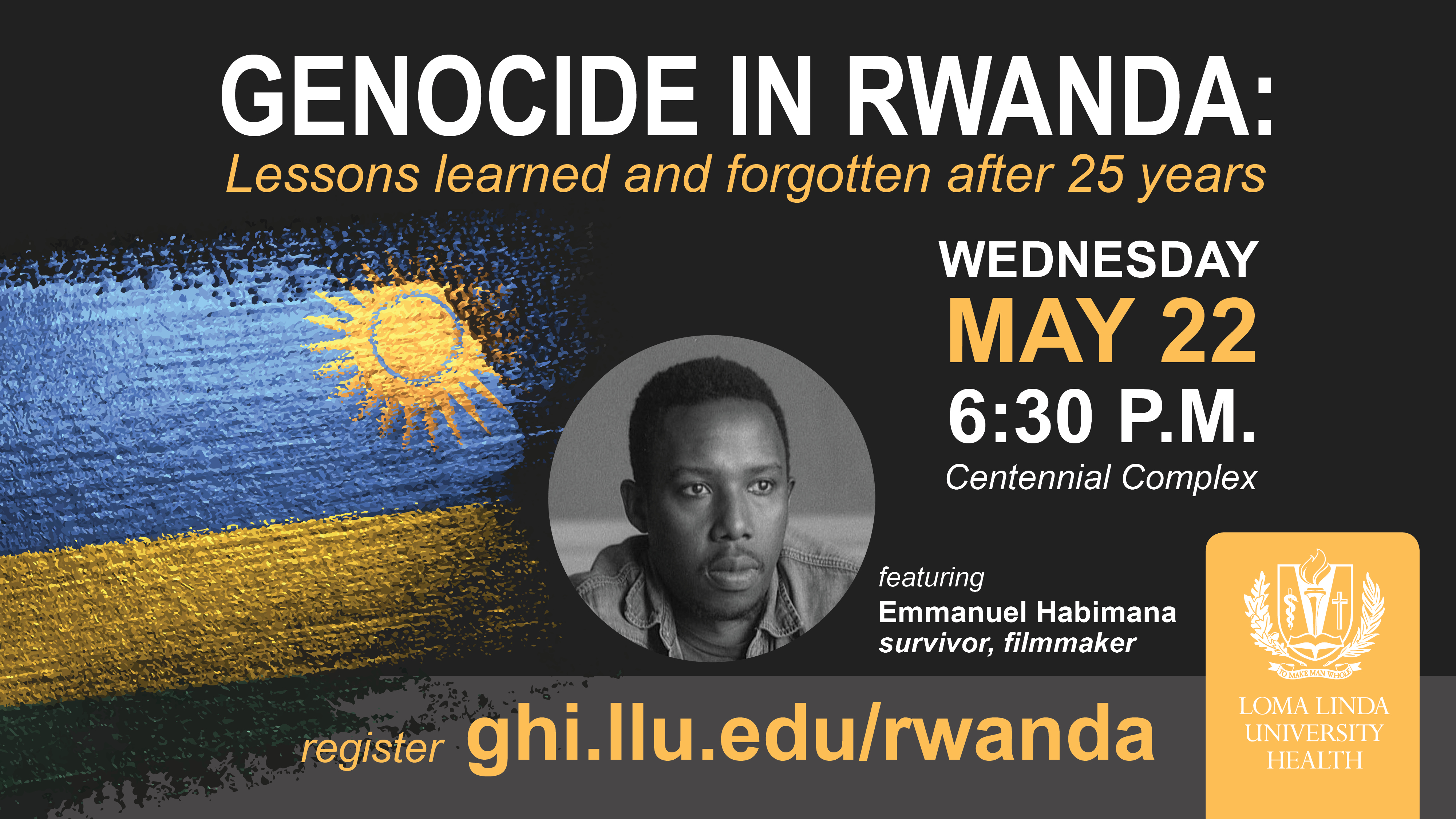
A quarter-century has elapsed since the 1994 genocidal campaign in Rwanda that took an estimated 800,000 lives in fewer than 100 days. What is there to be learned, and how do we so quickly forget?
You are invited to a special event on Wednesday, May 22, that will explore these questions. “Genocide in Rwanda: Lessons learned and forgotten after 25 years” will take place at 6:30 p.m. in Centennial Complex’s Damazo Amphitheater.
The event will feature powerful first-person stories that shed light on the human condition, the lessons to be learned from the genocide in Rwanda, and how we can be agents of change.
Program and speakers
Emmanuel Habimana, filmmaker and survivor of the genocide, will share a message of hope and healing.
He is an independent filmmaker and activist who has dedicated his life to speaking about human rights and the consequences of mass atrocities. His testimony of surviving the genocide in Rwanda is told through the National Geographic film Komora: To Heal, which he co-directed. Habimana educates communities about the horrors of genocide and how orphans and other survivors have coped with the consequences. He holds a bachelor’s degree from The Los Angeles Film School and is currently working on a film project that examines the concept of forgiveness in the aftermath of mass violence in different countries around the world.
Two panelists will also offer their insights:
• Carl Wilkens, MBA, former head of ADRA in Rwanda, was the only American who decided to stay in Rwanda to help save lives after the genocide began. Together with Rwandan colleagues, Wilkens helped save hundreds of lives by bringing food, water and medicine to clusters of orphans trapped around the city of Kigali.
• Aimable Ngendahimana, PhD, faculty in the department of Pharmaceutical and Administrative Sciences at Loma Linda University School of Pharmacy, was a child in Rwanda during the genocide against the Tutsi. Prior to coming to the U.S. in 2007 to pursue graduate studies, he worked as a high school science teacher. In the United States, he earned both a master’s and PhD degree, gathering experiences while in school including assisting in a program at Purdue University called “Sustainable Medicines in Africa,” before joining the LLU faculty.
Free and open to the public, this event is co-sponsored by Loma Linda University Health and the World Affairs Council of Inland Southern California.
To learn more, visit the Genocide in Rwanda event website or contact Katie Yutuc at 909-558-4420 or [email protected].
